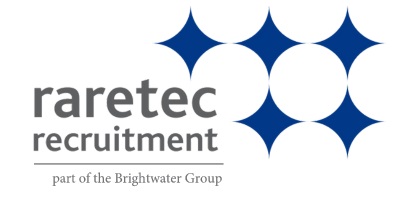If you are thinking of looking for your first actuarial job then the first thing you need to do is to create a clear CV. At Raretec we are specialist recruiters to the actuarial field and so will instantly know what you offer. However not all HR practitioners understand the actuarial profession, so you need to ensure that your experience is clear. Your CV is vital to that first stage of the recruitment process. A bad CV will get pushed to the bottom of the pile so it is really important to get it right.
Recruiters, HR practitioners and hiring managers are busy people and they need to identify what you offer quickly. Your cv should show both your academic achievements as well as your work experience and interests.
Personal Summary
Underneath your contact details, you should start with a personal statement. This should be 1 – 2 sentences explaining what you do and what stage of your career you are at, i.e. “I am a 2019 Actuarial Mathematics graduate from UCD seeking to begin my career as a Trainee Actuary”.
Education
Your education details should be shown in chronological order. You should include the following details.
Third Level Education
- University Name
- Course Title
- Dates Attended/Graduated
- Final Grade/Expected Grade
- Actuarial Exemptions achieved or expected exemptions
Second Level Education
- Name of School
- County/Town of School
- Dates Attended/Graduated
- Your results, include your total CAO points and Maths related results (Physics, Applied Math’s etc.) e.g “I achieved 500 points in the Leaving Certificate including a B1 in Maths and an A2 in Physics.”
Work Experience
For each role state the following
- Company Name
- Date range – from month/year to month/year
- Position Title
- Purpose of the role – 1 line to describe the function of the role and how it fits in the team
- Main achievements and responsibilities. List 4-5 main achievements or responsibilities of your role in bullet point form.
Your cv serves as an introduction to your skills and does not need to include every detail. Leave yourself something to talk about at the interview.The important thing is to get the main points across. Highlight transferable ‘soft skills’ such as teamwork, customer service, time management, problem solving etc, along with technical skills.
IT and technical skills
Most actuarial roles require some IT competency. List any relevant courses or IT skills that you have experience with or have learned. These could be programming languages, statistical analysis techniques, various mathematical or data analysis related tools – e.g. Excel, VBA, SQL, Matlab, R etc. If you are learning additional skills online in your own time, be sure to include this!
Achievements
Include achievements that you are proud of. These can be academic awards, scholarships, sporting achievements and various other awards or accolades. Keep these clear and concise – it is a talking point, not a reading exercise.
Interests
Most employers prefer rounded individuals that also have some interests outside of work. Don’t make up your interests. If you say you like reading then be sure to be able to talk about some books that you have or are reading!
References
There is no need to supply references at CV submission stage. Just cover this with a sentence to say “References will be provided on request”.
Additional points:
- Include any work experience you have – retail experience gives you transferable soft skills and shows you can balance work and study if you worked part time in college.
- Your CV should read in reverse chronological order, i.e. your most recent education and work experience comes first.
- CVs should not exceed 2 pages.
- You should avoid excessive use of formatting – some CVs need to be uploaded against an employer’s online recruitment portal which can skew your CV if there is too much formatting.
- CVs should be in Word or PDF format
Get in touch at recruitment@raretec.ie for more information.
